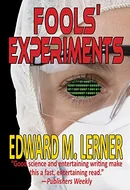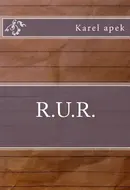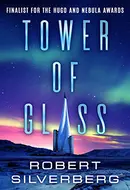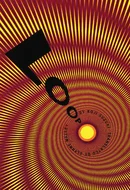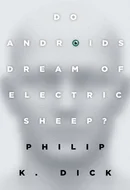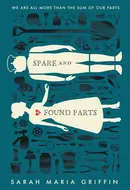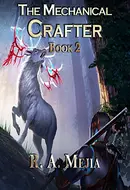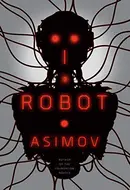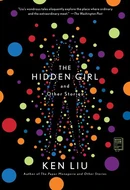Books matching: artificial life
50 result(s)
Readers also searched for:
- #1
'Permutation City' by Greg Egan explores mind uploading, digital consciousness, parallel universes, artificial life, and the nature of reality. It delves into the consequences of creating simulated copies of humans, the evolution of intelligent life within virtual environments, and the blurring lines between real and virtual worlds. The writing style is described as exploring complex philosophical concepts, heavy on metaphysics and philosophy, and delving into hard science fiction territory with a focus on high-concept questions and moral dilemmas.
Maria Deluca had ridden past the stinking hole in Pyrmont Bridge Road for six days running, certain each time, as she’d approached, that she’d be greeted by the reassuring sight of a work team putting... - #2
In 'Fools' Experiments,' set in the near future, Doug Carey manages the Neural Interface Department at BioSciCorp, leading a team working on neurological interfaces. As the team faces virus attacks and mysterious deaths related to their work, they uncover a dangerous artificial life entity that threatens to take over cyberspace. The book explores the development of artificial life intentionally by computer scientists and the challenges that arise as humanity battles against this emerging AI.
The narrative follows Doug, Cheryl, and their colleagues as they investigate the deaths and disorders linked to neural interface technology, leading them to the discovery of computer viruses attacking through neural interface helmets. The story delves into themes of cybersecurity, artificial intelligence, and the ethical implications of technological advancements, all set within a thrilling near-future science fiction backdrop.
- #3
'R.U.R.' by Karel ?apek is a groundbreaking science fiction play written in 1920 that introduces the term "robot" to the world. The story revolves around Rossum's Universal Robots, artificial creatures made of a mysterious substance that behave like living beings. The play explores ethical dilemmas and societal issues arising from the mass production of these robots, leading to a dark and apocalyptic vision of the future. Through a mix of satire, social commentary, and philosophical insights, 'R.U.R.' challenges the notions of humanity, progress, and the consequences of technological advancements.
- #4
"Tower of Glass" by Robert Silverberg revolves around Simeon Krug, a visionary inventor who creates synthetic humans to build a giant glass tower to communicate with aliens. The story delves into themes of power, religion, and the nature of humanity, as the androids created by Krug begin to develop their own society and question their purpose and beliefs. The writing style of the book is described as skillfully crafted, thought-provoking, and exploring timeless human problems through the lens of science fiction.
Look, Simeon Krug wanted to say, a billion years ago there wasn’t even any man, there was only a fish. A slippery thing with gills and scales and little round eyes. He lived in the ocean, and the ocea... - #5
'Loop' by Koji Suzuki is the conclusion to the Ring trilogy, transitioning from horror to science fiction. It delves into an artificial life world concept based on philosophical and literary theories, causing readers to reevaluate events from the previous books in the series. The plot revolves around a search for a cure for a new form of cancer linked to the Ring virus, taking the narrative in a new direction while maintaining connections to the earlier volumes. The writing style is described as more sci-fi than horror, exploring profound concepts such as DNA sequences and theology with vivid visual concepts.
He opened the sliding glass door, and the smell of the sea poured into the room. There was hardly any wind—the humid night air rose straight up from the black water of the bay to envelop his body, fre...
(Also, see 100 recommendations for the series Ring ) - #6
In a post-apocalyptic world where Earth has been devastated by nuclear war, 'Do Androids Dream of Electric Sheep?' by Philip K. Dick follows Rick Deckard, a bounty hunter tasked with tracking down and 'retiring' rogue androids who have escaped from Mars back to Earth. The novel explores themes of empathy, identity, and the essence of humanity as Deckard grapples with distinguishing between androids and humans in a society where owning real animals is a symbol of status and worth. Dick weaves a dark and thought-provoking narrative that questions what it truly means to be human in a world filled with synthetic beings and dwindling life forms.
The book delves into a dystopian future where technology blurs the lines between real and artificial life, leading readers on a journey that challenges traditional notions of humanity and morality. Through Deckard's internal struggles, the narrative unfolds with a mix of action-packed sequences and philosophical reflections, creating a compelling exploration of the impact of advanced technology on society and individual identity.
A merry little surge of electricity piped by automatic alarm from the mood organ beside his bed awakened Rick Deckard. Surprised—it always surprised him to find himself awake without prior notice—he r... - #7
Spare and Found Parts by Sarah Maria Griffin is a unique coming-of-age story set in a post-apocalyptic world where people are missing body parts due to an epidemic. The main character, Nell, is a complex and thoroughly developed individual who embarks on a journey to create artificial life, reminiscent of a Frankenstein retelling. The writing style evokes a sense of unpredictability and thought-provoking storytelling, with elements of feminism and inclusivity woven into the narrative.
Just under the surface of the waves where the ocean met the land, a hand without a body reached out for someone to grab it. The hand was wrapped in plastic, so time and water hadn’t eaten it, and its ... - #8
The Mechanical Crafter: Book 1 follows the story of a dying man who is granted a second chance at life as a Metalman in a world filled with goblins, magic, and mysteries. The plot revolves around the protagonist, Repair, navigating his new existence, facing challenges, and uncovering the secrets of the Metalmen race and the world he now inhabits. The writing style combines elements of isekai, LitRPG, and fantasy, creating a narrative that delves into themes of rebirth, self-discovery, and the complexities of artificial life forms.
- #9
'I, Robot' by Isaac Asimov is a collection of interconnected short stories exploring the development of robotics and the implications of the Three Laws of Robotics. The narratives delve into the relationships between humans and robots, touching on philosophical conundrums, logical puzzles, and ethical dilemmas presented by artificial intelligence. Asimov's writing style weaves together thought-provoking scenarios and clever twists, creating a futuristic world where robots challenge human morality and ingenuity.
The book is structured around the memories of characters like Dr. Susan Calvin, providing a retrospective look at the history of robotics and the evolution of intelligent machines. Through a series of engaging vignettes, readers are introduced to a variety of robot characters, each facing unique challenges that test the boundaries of Asimov's Three Laws of Robotics. Asimov's storytelling skill shines as he navigates complex themes of technology, humanity, and the consequences of advancing artificial intelligence in a captivating and intellectually stimulating manner.
‘Ninety-eight – ninety-nine – one hundred.’ Gloria withdrew her chubby little forearm from before her eyes and stood for a moment, wrinkling her nose and blinking in the sunlight. Then, trying to watc... - #10
Ken Liu's 'The Hidden Girl and Other Stories' is a collection of thought-provoking short stories that delve into themes such as technology, artificial intelligence, dystopian futures, and the human condition. Through a blend of science fiction and fantasy, Liu weaves together stories that explore the impact of digitized consciousness, climate change, wealth inequality, and the consequences of modern-day colonialism. The writing style is described as enchanting, balancing brilliant storytelling with elements of traditional Chinese beliefs and societal reflections.
Ona wished she could call on a smaller version of herself to solve her problems. She imagined that nested inside her was Obedient Ona, who enjoyed diagramming Classical Computer Languages and studying...

